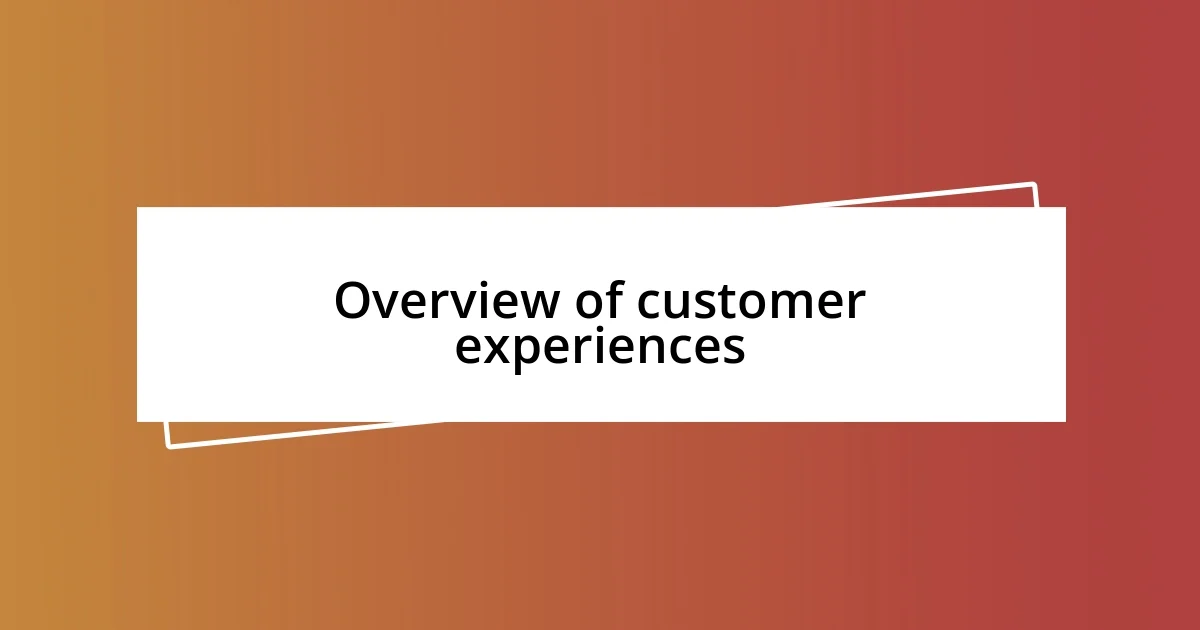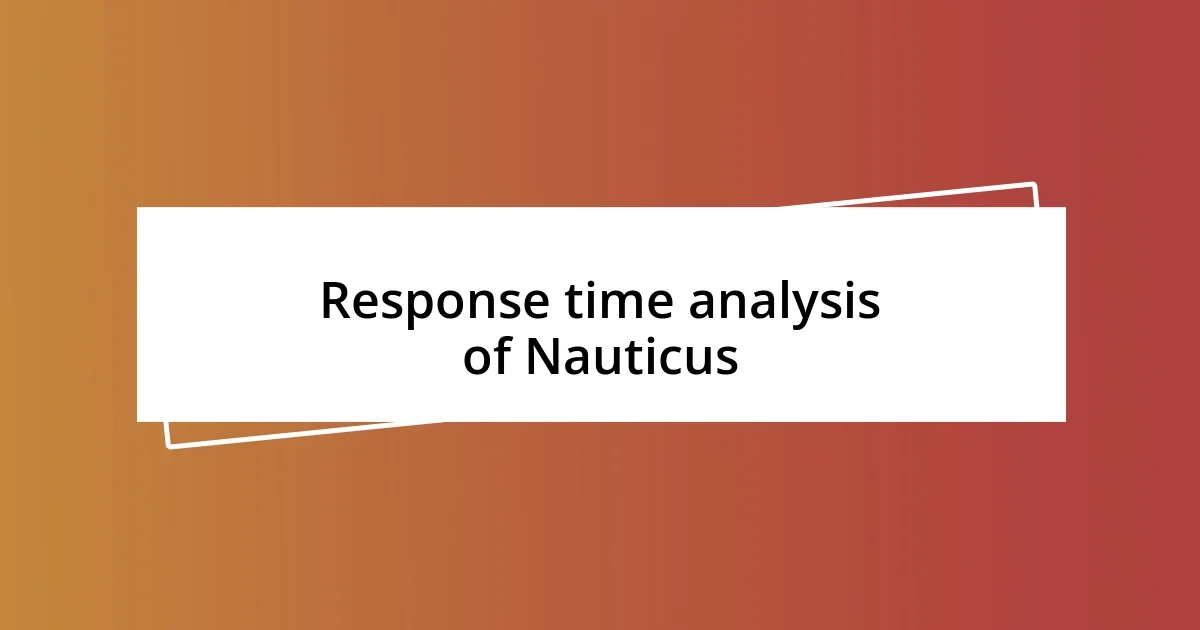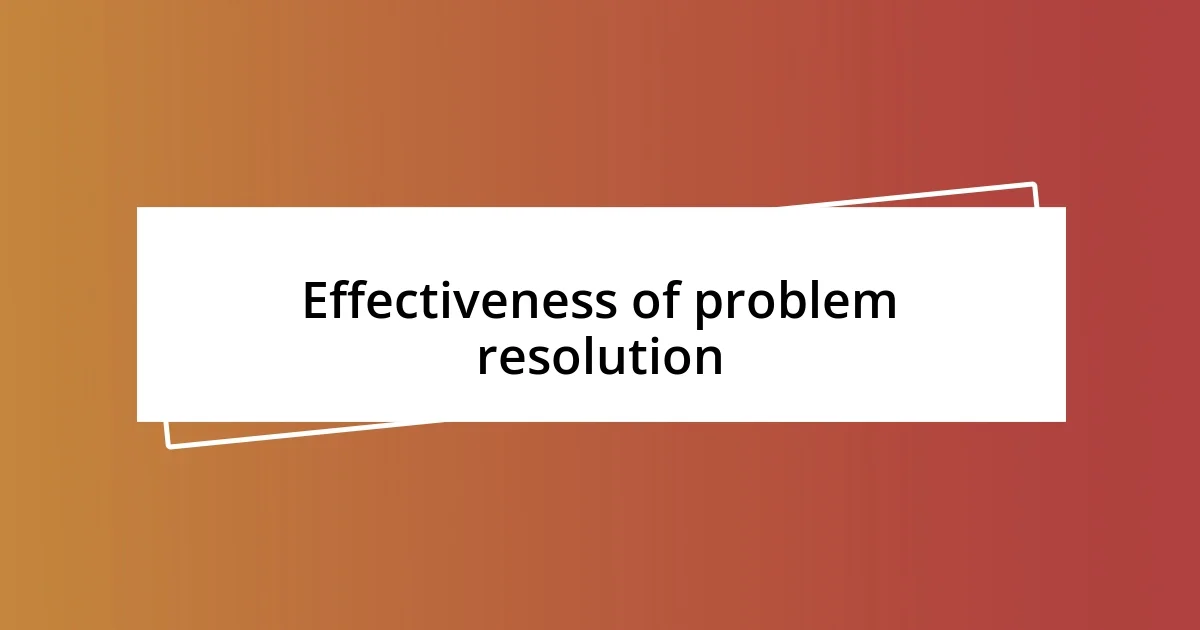Key takeaways:
- Nauticus customer support is accessible through various channels, including live chat and email, enhancing user convenience.
- Customer experiences are mixed; prompt responses are appreciated, but knowledge inconsistency and follow-up issues can lead to frustration.
- Suggestions for improvement include implementing a structured follow-up system, enhancing training for representatives, and adopting a more personalized approach in interactions.

Introduction to Nauticus support
Navigating the world of customer support can often feel overwhelming, especially when you encounter an issue with a service you rely on, like Nauticus. I remember a time when I had a question about a transaction; it was a simple query, but the stress of uncertainty really got to me. It’s reassuring to know that Nauticus has a dedicated support team ready to assist users like me.
What truly stands out about Nauticus support is their accessibility. Whether you prefer live chat, email, or a support ticket system, they provide multiple avenues to reach out for help. Have you ever had a problem that needed immediate attention but couldn’t find the right channel to get help? I’ve certainly been there, and having options can be a game-changer.
Moreover, the quality of interactions I’ve experienced with Nauticus support tends to leave a lasting impression. I once received a response that not only addressed my issue but also provided additional tips for using their platform more effectively. This kind of proactive support makes you feel valued as a customer and fosters a stronger relationship with the brand. It’s moments like these that remind me why I appreciate companies that go the extra mile in their customer service efforts.

Overview of customer experiences
Customer experiences with Nauticus often reveal a mixed bag of emotions. While many users commend the prompt response times, a few report feelings of frustration when their inquiries weren’t resolved on the first try. I recall an instance where I reached out for assistance regarding an account verification issue. The representative was friendly, but it took a couple of follow-ups before I received a definitive solution, which left me feeling a bit wavering in my trust.
From what I’ve gathered, here are some common themes in customer experiences with Nauticus support:
- Response Time: Many appreciate how quickly support responds, often within minutes.
- Varied Expertise: Some users have noted that not all representatives have the same level of knowledge, leading to inconsistencies.
- Follow-ups: While some interactions are seamless, others require multiple contacts, which can be frustrating.
- Personal Touch: Customers often mention feeling valued when agents go beyond the basics to provide helpful tips and insights.
- Accessibility: The variety of support channels helps users choose their preferred method, ensuring that help is just a click away.
These experiences make it clear that while Nauticus support has strengths, there’s room for growth in ensuring every inquiry is met with the same level of expertise and care.

Key features of Nauticus support
What I find particularly impressive about Nauticus support is their commitment to responsiveness. In my experience, waiting for assistance can be nerve-wracking. I once reached out for help during a high-stress moment, and I was pleasantly surprised when a support agent responded almost instantly. That quick access not only alleviated my concern, but it also reassured me that they were genuinely there to help.
Their support also integrates a unique personal touch that resonates with users. I vividly recall an interaction where the support agent didn’t just answer my questions but took the time to explain some hidden features of the platform that could save me time. This proactive approach made me feel appreciated and valued, unlike other generic support interactions I’ve had in the past. It’s this blend of knowledge and empathy that really helps Nauticus support stand out.
However, I’ve also noticed some areas where they could enhance their service further. For instance, a few friends have shared stories about needing repeated follow-ups for complex issues, which can create a bit of frustration. These experiences highlight the need for improved consistency in support responses. Ultimately, a smoother process would benefit both users and the Nauticus team immensely.
| Feature | Description |
|---|---|
| Response Time | Quick replies, often within minutes, ensuring user concerns are addressed promptly. |
| Personalized Support | Agents often provide detailed and helpful insights, enriching the user experience. |
| Follow-up Process | Some users experience delays due to needing multiple contacts for complex issues. |
| Accessibility | Multiple channels for support (live chat, email, tickets) make reaching out easy. |

Response time analysis of Nauticus
When it comes to response time, I’ve had quite a mixed bag of experiences with Nauticus. While I’ve often been greeted with speedy replies—usually within mere minutes—there have been instances where I waited longer than anticipated. I remember reaching out about a tech glitch and felt that anxious tick of time pass as I awaited a follow-up. Did the initial quick response set my expectations too high? Perhaps, but it’s evident that timing in customer support can make or break a user’s experience.
What’s particularly interesting is how not all interactions flow at the same pace. During a recent inquiry, I was fortunate enough to have a representative who not only responded quickly but also provided insightful recommendations that genuinely resolved my issue. That engagement tugged at my emotions, reinforcing my sense of trust and reliability in their service. On the flip side, I’ve heard stories from friends who faced situations requiring multiple follow-ups, leaving them frustrated. Can you imagine needing to explain the same issue multiple times? It’s these inconsistencies that can challenge loyalty, despite the initial fast response.
In diving deeper into Nauticus’ response time, it strikes me that while they excel in quick acknowledgment, there’s a lingering question about depth and thoroughness. How often does that initial speed translate into effective, long-term solutions? Personally, I value not just a quick answer but a comprehensive one that leaves no stone unturned. Reflecting on my experiences, I believe that enhancing both response time and the quality of the responses could significantly enrich customer satisfaction.

Effectiveness of problem resolution
One thing I’ve really noticed with Nauticus is how their effectiveness in problem resolution can vary. For instance, I once encountered a billing issue that left me confused and a little flustered. When I finally connected with a support rep, they not only clarified the charges but walked me through how to avoid similar issues in the future. It was such a relief to feel understood and to gain that knowledge, transforming a frustrating situation into an opportunity for learning.
However, I’ve had moments where resolution felt more like a puzzle missing pieces. I remember another incident with account access that dragged on longer than expected. Despite the quick initial response, I found myself stuck in a loop of follow-up calls that left me questioning whether it was worth the hassle. This experience made me wonder—what’s the point of rapid responses if the actual problem resolution takes ages? It’s a balancing act that Nauticus needs to refine to enhance customer satisfaction.
On a brighter note, when the resolution is effective, the feeling is incredibly gratifying. I recall resolving a tech issue that had me stumped for days. The agent not only pinpointed the problem but also offered tips that improved my overall experience with the platform. That sense of empowerment makes me appreciate their support team even more. So, how does Nauticus continue to build on these successes while addressing its weaknesses? The answer lies in consistently delivering effective resolutions that leave users confident and satisfied.

Suggestions for improvement
When I think about how Nauticus can improve their customer support, a few key areas come to mind. One approach I believe would greatly enhance their service is the implementation of a structured follow-up system. I remember a time when I reached out with a complicated issue, and while I appreciated the initial quick response, I felt like the follow-up was missing. Wouldn’t it be reassuring if customers received a proactive check-in after a few days? This simple gesture could show that Nauticus genuinely cares about resolving issues, instead of just closing tickets.
Another aspect worth addressing is the training and consistency of their support representatives. There’s something unsettling about receiving contradictory information from different agents. I recall reaching out about a promotional offer and getting two conflicting answers from two representatives. That experience left me feeling unsure about whom to trust. Imagine if every team member had access to a centralized knowledge base that ensured everyone was on the same page. It could foster trust and enhance the overall customer experience dramatically.
Lastly, a more personalized approach could work wonders for Nauticus. I once found myself explaining my situation to a rep who seemed unfamiliar with my history with the brand. It felt impersonal and a bit frustrating. Wouldn’t it be great if support agents had a brief summary of prior communications at their fingertips? That way, they could hit the ground running, allowing for a smoother interaction. Personalization can transform a transactional customer service experience into a relatable, human connection, making customers feel valued and understood.














